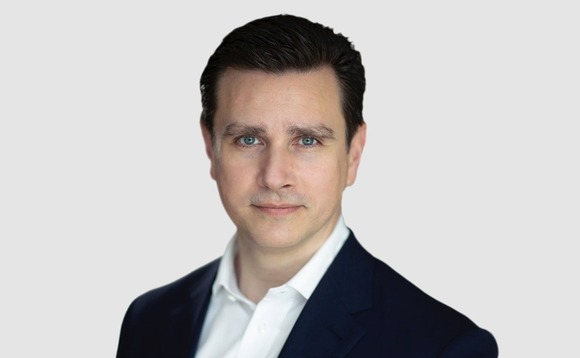
GP Profile: BC Partners looks to steady deployment ahead of next fundraise

BC Partners is aiming for steady deployment amidst a highly competitive market as it takes stock ahead of its next fundraise, head of investor relations Alexis Maskell told Unquote.
The GP is aiming to lay strong foundations for when it next hits the road, which is expected to be in H2 2023, Maskell said. "This [previous] fundraise took longer than we wanted, so we want to fundraise in as efficient and tight a way as possible next time," Maskell said. "We want to be well-prepared and have some good early engagement with LPs."
BC Partners announced the final close for BC European Capital XI in February 2021 on EUR 6.9bn, as reported. The fund was launched following rapid deployment from Fund XI but did not meet its EUR 8.5bn target. Its predecessor vehicle held a final close in January 2018 on EUR 7bn.
The timeline of the process and the backdrop of the coronavirus pandemic made for a challenging fundraise for Fund XI, Maskell acknowledged. "We began fundraising six months earlier than expected for Fund XI due to fast deployment and the IMA deal, and a lot of what we were planning in terms of realisations was suddenly not possible due to Covid."
Maskell did not disclose a target for Fund XII but said: "I don't expect to be at a size for Fund XII that is materially different from the space we occupy today – we will probably seek to be slightly larger but still consistent with the mid-market focus we have today, but not something like 50-60% higher."
BC Fund XI has made eight investments to date, committing more than EUR 2.4bn in capital and providing EUR 1.8bn in co-investment opportunities, the GP said in a statement issued at the time of the final close announcement.
Setting the agenda
The fundraise follows a period where exits were on the GP's agenda, Maskell told Unquote. "We have had a great environment for exits over the past year or two, so exits have been a high priority for us," he said.
BC's exits over the course of 2021 included mental health and specialist care services Elysium Healthcare which the GP sold in a GBP 775m trade sale in December, having formed the company in 2016 via the acquisition of 22 mental health facilities that were formerly part of the Priory Group.
The GP is also preparing frozen baked goods business Forno d'Asolo for a sale, as reported by Unquote's sister publication Mergermarket in February. BC Partners declined to comment on the topic at the time that the report was published.
"We invest in the upper-mid market and exit optionality is very important if you want to maximise value: you need a large number of potential buyers and options, so public markets and SPACs are an option," Maskell continued. "But our exits are also not too big for a strategic buyer or one of our larger peers to consider."
However, the GP has been shifting its focus to steady deployment. "As we started deploying Fund XI, we increasingly also turned our minds to investing," Maskell said. "Last year was very active, partly thanks to pent up inventory from the lull in transactions due to Covid; but part of it was down to the availability of assets in the market. Combined with the strong financing market, it created a heady cocktail for deal making – but you need to be twice as careful in this environment as this is when deal fever kicks in from your competitors."
Looking ahead to 2022, the GP is remaining conscious of its fundraising timeline while it continues to deploy, Maskell told Unquote. "This year, we will be focused on deploying thoughtfully, as we plan to go out to market in H2 2023." The GP is keen to ensure diversification amidst a buoyant but often uncertain market. "Deploying a fund in a year or two means you will not create a vintage diversification for your investors," Maskell said. "LPs expect you to put their money to work over two to four years, not 12 to 18 months. We will invest Fund XI across broadly a three-year vintage – we made our first deal from the fund at the end of 2020 and we expect to deploy until mid-2023."
Measured deployment
BC Partners targets upper-mid market European companies and can deploy up to 40% of its capital in the US, where it supports mid-market businesses. "We feel very well placed, we have a broad, diversified sector focus across TMT, industrials and business services, healthcare, and consumer – although we don't ignore regional sensitivities and characteristics," Maskell said. "We are very cautious on retail and consumer as it is evolving and changing."
BC Partners generally deploys EUR 1.5bn-EUR 2bn per year and the GP can typically deploy EUR 200m-EUR 500m per investment, but can commit more in certain scenarios, Maskell told Unquote.
"CeramTec is a case in point where we committed EUR 800m alongside CPP; we are focused not to have any overweight positions in the Fund and so cap our exposure to each investment around EUR 300m-EUR 400m."
This exposure is also managed by co-investments, Maskell added. "We have a sophisticated programme to syndicate co-investments to our investors; in Fund IX and X alone we offered co-investment on almost half the portfolio."
In order to get the best value for its LPs, BC has been wary of certain competitive structured processes, Maskell said. "We have been careful not to participate in aggressive auctions: you need to feel you have a right to win and you have done all the work you can." However, the firm does participate in such processes when the circumstances are right, he added. "The only business that we bought from a competitive auction in 2021 was Women's Care – there was an ongoing process in the same sector and we knew that the market would be split between them and so felt we had a favourable competitive landscape. For other companies we bought, we were only in competition after we had done a lot of the work, spent time with the management and we knew what valuation we were comfortable with, regardless of the timeline."
Refining sectors
Of its sectors of focus, technology requires particular discipline, Maskell noted. "We need to be very disciplined around technology as there are a lot of dedicated funds who have to commit capital to that space. We only do technology deals when we see a compelling risk-reward payoff. In the US we tend to focus on enterprise software, and in Europe we look at IT services."
The GP is conscious of the potential impact of inflation on the sector. "The focus is buying businesses that are leaders in their space and have the ability to protect their margins, regardless of whether the inflation impact is transitory or structural," Maskell said. "This is increasingly talked about at investment committee level."
When it comes to the consumer sector, BC expects to be "very selective" and will focus less on retail, Maskell said. "We want to invest in areas where there is genuinely strong and enduring growth. Consumer behaviour has changed over the pandemic, so you need to be careful in deploying capital there." The GP's recent consumer investments include the Greece-based pet products business Pet City.
Healthcare, like technology, is an area in which the GP has identified a differentiated focus for Europe and the US. "We broadly look at healthcare services in the US and pharma in Europe," Maskell explained. "The combination of regulation and market structure in Europe can make it difficult to make predictable and reliable returns in healthcare services in Europe. We would do a healthcare services investment in Europe as long as we could price in the regulatory risk. But if you add scale to and professionalise the offering of independent physicians within a business, that can create value. We are not focused on hospitals and care homes as this can be a binary risk. We look at medtech in both [the US and Europe], but the opportunity set tends to be thin on the ground."
"We look at industrial automation, focusing on industrial companies with recurring revenues, high cash generation and a sticky customer base. In the same way we look at the broader Business Services space. We have also picked out areas where tech can make a difference and we can accelerate trends such as Davies, but we don't look at heavy industrials," he said.
Developments are also continuing in BC's existing portfolio. Maskell cited several portfolio companies that currently have strong add-on pipelines: UK-based insurance technology and services provider Davies; US-based women's healthcare provider Women's Care; Germany-based food and pharmaceuticals testing business Tentamus; and US-based higher education research and software service provider EAB. Ceramic components business CeramTec is also continuing to make add-ons to expand its medtech vertical, Maskell said.
Meanwhile, Springer Nature is looking to sell off the non-core parts of its portfolio, Maskell said. Mergermarket reported in December 2021 that the company was expected to launch the sale of its road safety information and education assets in 2022. The GP owns the academic publisher via a special-purpose vehicle, which had attracted commitments of more than EUR 1bn as of June 2021.
BC Partners owns a minority stake in the publisher of Unquote.
Latest News
Stonehage Fleming raises USD 130m for largest fund to date, eyes 2024 programme
Sponsor acquired the public software group in July 2017 via the same-year vintage Partners Group Global Value 2017
Stonehage Fleming raises USD 130m for largest fund to date, eyes 2024 programme
Czech Republic-headquartered family office is targeting DACH and CEE region deals
Stonehage Fleming raises USD 130m for largest fund to date, eyes 2024 programme
Ex-Rocket Internet leader Bettina Curtze joins Swiss VC firm as partner and CFO
Stonehage Fleming raises USD 130m for largest fund to date, eyes 2024 programme
Estonia-registered VC could bolster LP base with fresh capital from funds-of-funds or pension funds









